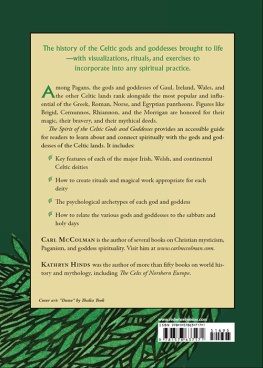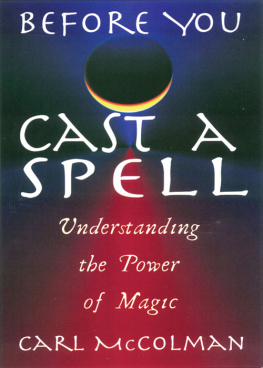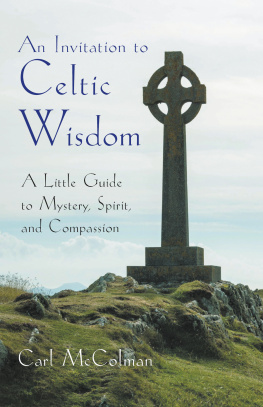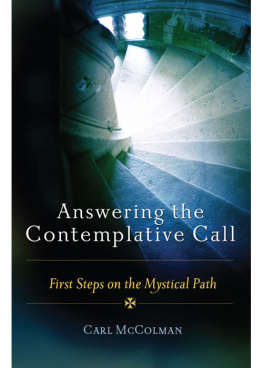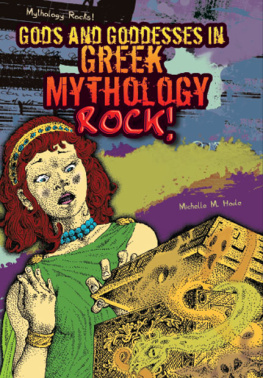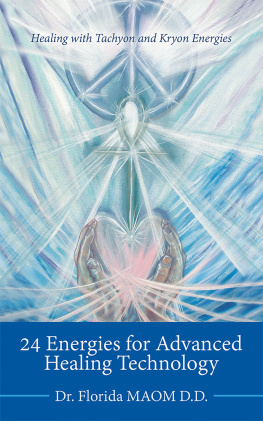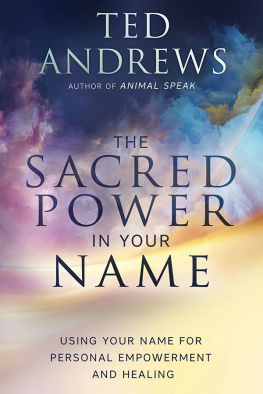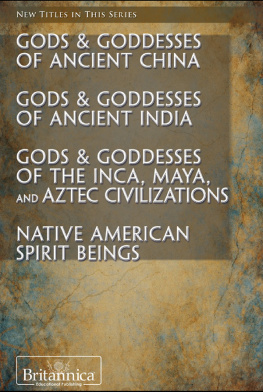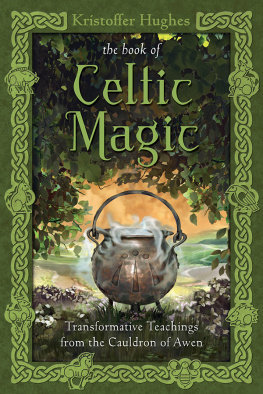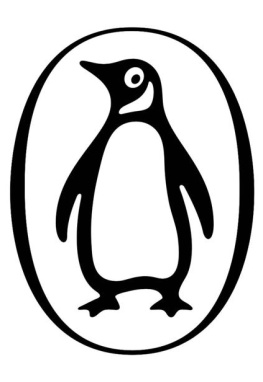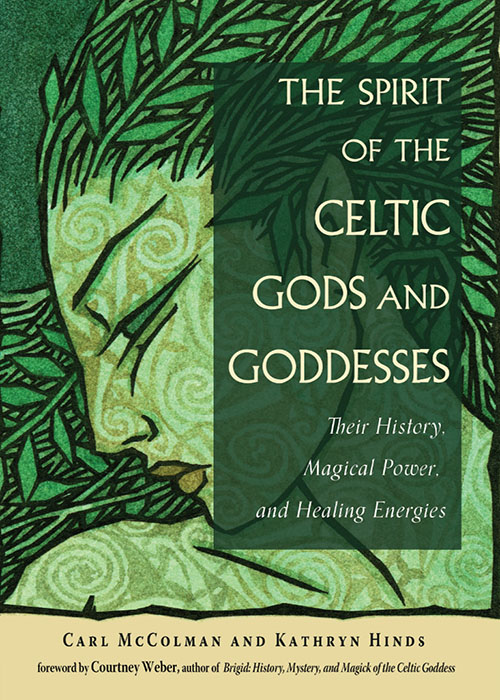
THE SPIRIT OF THE CELTIC GODS AND GODDESSES
THE SPIRIT OF THE CELTIC GODS AND GODDESSES
Their History, Magical Power, and Healing Energies
CARL MCCOLMAN AND KATHRYN HINDS
FOREWORD BY COURTNEY WEBER

This edition first published in 2020 by Weiser Books, an imprint of
Red Wheel/Weiser, LLC
With offices at:
65 Parker Street, Suite 7
Newburyport, MA 01950
www.redwheelweiser.com
Copyright 2005, 2020 by Carl McColman and Kathryn Hinds
Foreword copyright 2020 by Courtney Weber
All rights reserved. No part of this publication may be reproduced
or transmitted in any form or by any means, electronic or
mechanical, including photocopying, recording, or by any
information storage and retrieval system, without permission in
writing from Red Wheel/Weiser, LLC. Reviewers may quote brief
passages. Previously published in 2005 as Magic of the Celtic Gods
and Goddesses by New Page Books, ISBN: 978-1-56414-783-7
ISBN: 978-1-57863-717-1
Library of Congress Cataloging-in-Publication Data available upon request.
Cover design by Kathryn Sky-Peck
Cover illustration: Danu Thalia Took
Interior by Steve Amarillo / Urban Desgn LLC
Typeset in Adobe Minion Pro and Albertus MT
Printed in the United States of America
IBI
10 9 8 7 6 5 4 3 2 1
www.redwheelweiser.com/newsletter
To Christina, for showing me this path
K. H.
To Gwen, for walking the path with me
C. M.
Contents

Foreword
F airy maidens, magic swords. Dragons and cursed swans, ancestral mounds, and gods that arrived on an emerald island on ships from the sky. The sound of pipers at dawn, and mists that shrouded secrets for millennia. These intoxicating elements have lured seekers to Celtic mythology for generations, and still do. Like an enchanted well with no bottom, the stories get richer the deeper we dive into them. There is no limit to the magic of the Celtic world. No one person can absorb it all in one lifetime, although it's certainly tempting to try.
The Celtic cultures have circled the world via the hearts and stories of those who emigrated. The tides have turned and today, instead of venturing into the new and unknown, many people are seeking the old: the mists, the maidens, the cauldrons, and the wells. Some spiritual seekers are returning to their ancestral roots while others find homes on paths that would have been foreign to their ancestors. Why is this happening? Perhaps during this era when our world is threatened by climate change and more, we yearn return to a time when the divine was not disembodied and looking down upon us in judgment, but rather a presence in the very soil and roots of the trees around us.
When I began my own Pagan journey, I sought truth: who were the gods? Did the powerful Brigid truly call out to me or was she simply a figment of my own projections? Was the Morrigan truly terrifying or was the fear surrounding her a symptom of centuries of patriarchy? I found few answers in those early days. The internet was still a fledgling tool. Few writers were blogging, even fewer blogging about the Celts. There were plentiful books on Celtic mythology, but they were either dryly academic and devoid of the magic I so desperately wanted, or so saturated in subjective experience that they felt disconnected from their original source.
Imagine the joy I felt when I found The Spirit of the Celtic Gods and Goddesses. Finally, a text that breathed life into the academic and gave shape to the experiential. Writers of the Victorian era and even some modern revisionist traditions erased the more unsavory details of the gods. In more recent years, perhaps in reaction to such revisions, stringent adherence to academic sources among Pagans has created a kind of orthodoxy, often leaving would-be practitioners too intimidated to follow their own soul's calling. The strict academic path is the way for some, the purely experiential the best for others. But there's a place where those two paths can meet, and that is where we find this book. Carl McColman and Kathryn Hinds created an important middle path. McColman and Hinds emphasize the beauty without ignoring the ugly, all the while offering specific, practical ways that curious seekers might connect with them. They never shied away from the reality of these myths, even when that reality meant that sometimes these deities were cruel or crude, rather than kind and benevolent.
It's not a book to inhale, set aside, and race off to the next one. While a gentle read, it's also a journey. Each chapter takes you into the world of a different deity: their story, strengths, weaknesses, their helpful attributes but also how they can be harmful. The Abrahamic traditions created the legacy that gods are all-powerful, but in many cultures around the world, including those of the Celtic countries, the gods could make mistakesand often did. They could and would badger humans just for fun. In my experiences as Pagan, this is often true. McColman and Hinds make no excuses for these traits of these deities. They are not all goodness and light, just waiting to help us out like Fairy Godmothers or Godfathers. At the same time, they acknowledge them as beings of great power and wisdom, compassion and mercy. They provide guidance on when to approach these deities and ask us to consider how they might impact our lives, but this is offered more as perspective than warning. Readers are encouraged to follow their hearts with self-awareness, asking themselves if a specific deity is right for their path at this specific time or perhaps one to approach at a different point. It's a book that is practical in its approach, yet filled with heart and love for these remarkable beings and stories.
This book is a gateway. It should be approached with the same wonder that brought you to the Celtic path in the first place. My advice is to sit with each chapter after completing it, to pause and absorb the new information. It may seem that McColman and Hinds leave you wanting more. They do, but not because they withhold information, but because they spark our curiosity. They have given us seekers, both the new and the seasoned, a true gift.
You are about to start a remarkable journey. May your path be blessed.
Courtney Weber, author of The Morrigan and Brigid
September 2019
PART ONE
Introduction
CHAPTER 1

Entering the Otherworld
We'd like to invite you into a fascinating world. It's a world shaped by history and mythology, by ancient stories and modern spiritual yearning. It's a mystical world where mortals encounter immortals, where humans live and love alongside powerful beings who can only be called gods and goddesses. It's a world of magic and miracles, of heroes and heroines with extraordinary abilities who fight fearsome enemies and heart-stopping demons. It's a world where virtues such as honor, hospitality, courage, wisdom, and sovereignty (freedom) matterwhere both gods and mortals are willing to fight and die for such eternal values.
Next page
